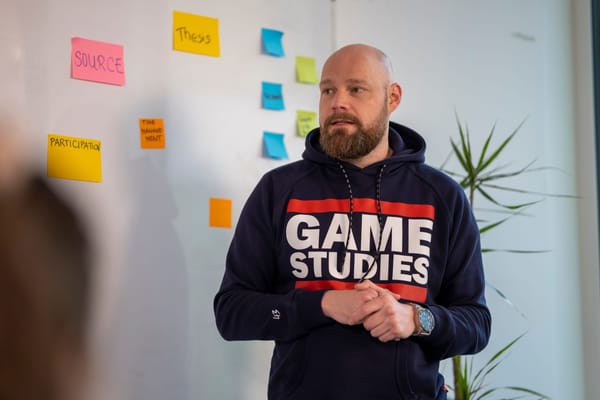Quinke, who was once one of the founders of the Gamecity Hamburg initiative, where Germany's first state funding program for games was launched, was part of the panel. “When the Going Gets Tough – Resuscitation Attempts for a Lying‑down Job Market in the International Games Industry”. Moderated by Ruth Lemmen (freelancer and co-founder of Womenize! Conference), the panel also included Monika Michalak (8Bit), Frederico Machado de Campos (Yager), and Fredrik Lindahl (Luleå University of Technology) also took part.
Of course, none of them could offer a magic bullet solution to the current problems in the industry, but they did provide valuable insights, particularly into the work of HR departments, which are often unfairly accused of not providing feedback on the reasons for every rejection. With hundreds and sometimes thousands of applicants responding to a job advertisement, this is simply impossible – not to mention the concerns raised by the legal department about providing such feedback.
Ultimately, however, it was the figures presented by Achim Quinke at the beginning of the panel discussion that had the greatest news value. Quinke and his team have been monitoring the job market in the games industry in Germany for over ten years. According to their own statements, they also visit the websites of the largest studios every month to count the number of job vacancies advertised. And thanks to their close connections to HR departments, they also have a good insight into the job market in the German games industry.
"2016 we had more people working in the [German] games industry than today." – Achim Quinke
"We think that we have in Germany more or less 9000 people maximum working in the games industry right now. The official reports are a bit different - I don't know why, but this is our view. And from this 9,000 people roughly 6,500 people work in the 50 biggest studios," Quinke said. According to his information, the 9,000 jobs represent a decline of 25% over the past three years. The industry is therefore smaller than it was ten years ago."2016 we had more people working in the [German] games industry than today," Quinke said. "Unfortunately, that's really not good news."
Even more interesting than the deviation from the official reports, which he notes as an expert, is the development of job advertisements. Currently, the 50 largest studios in Germany have around 250 job postings online. "Two years ago, in October 2023, there were around 500 open jobs. Before the pandemic it was more or less always more than 1000 open jobs each month," according to Quinke.
When the discussion turned to what those affected by layoffs can do, the answer was that there are really only four options.
"In Sweden we have a really nice industry, but for some reason we have no public funding for gaming industry generally speaking." – Fredrik Lindahl
You can try to apply for one of the few vacant positions in Germany. Or, if you are flexible, you can also target the international job market, although you need to be aware that the competition for well-trained talent is even greater there. The third option is to leave the industry. Last but not least, thanks to government support, it is relatively easy to start your own business in Germany.
Interestingly, Fredrik Lindahl chimed in with his perspective from Sweden, one of the most important game production locations in Europe. “In Sweden we have a really nice industry, but for some reason we have no public funding for gaming industry generally speaking. Yeah, we have universities to teaching and stuff like that but no way to public fund a game. That is definitely something you should take advantage of”, Lindahl said.
GamesMarkt Daily Newsletter
Sign up to receive the free daily newsletter about the Games Industry in GSA, Europe and beyond.
No spam. Unsubscribe anytime.









